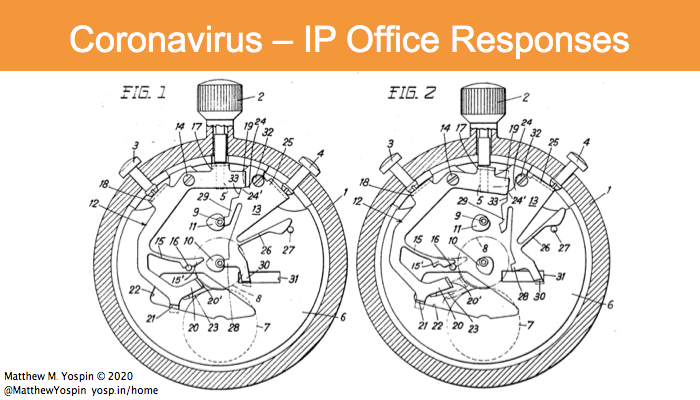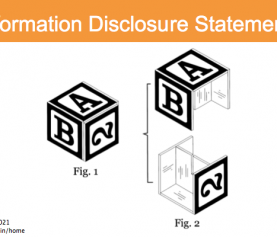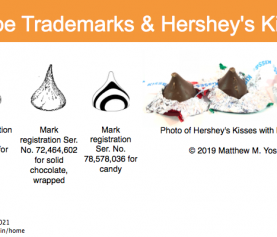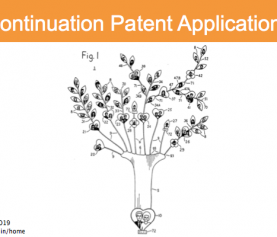Coronavirus responses from IP Offices
The US government IP Offices are responding to the coronavirus outbreak by adjusting rules and requirements to allow for increased safety of applicants and users, and of the examining attorneys and staff of the Offices. The rules changes will also allow the work of the USPTO and the USCO to continue as smoothly as possible, with an increased number of employees working from home, while maintaining the level of service of the Offices. The USPTO and USCO remain operational for filing and processing of applications and other proceedings.
Patent and Trademark Office responses to Coronavirus
Filing deadlines
The USPTO Director has temporary authority to extend filing deadlines, which are set out by statute, under the Coronavirus Aid, Relief and Economic Security Act (CARES Act), if the effects of the COVID-19 virus “materially affects the functioning of the Patent and Trademark Office,” or “prejudices the rights of applicants, registrants, patent owners or others appearing before the office,” or “prevents users from filing a document or paying a fee timely.” This is good news for patent and trademark owners and applicants – the deadlines are ordinarily inflexible, and missing them can typically only be fixed by petitioning and paying a fee, which is not certain to work in all cases.
Some petition fees waived
The USPTO has waived some petition fees for certain filers, if the “the practitioner, applicant, or at least one inventor, was personally affected by the Coronavirus outbreak such that they were unable to file a timely reply.” This notice did not waive or extend any deadlines.
Offices closed; no in-person meetings
The USPTO has already, earlier in March 2020, closed its offices to the public and to most employees – many of the examining attorneys already worked remotely, and temporarily, more will do so. The USPTO also stopped all face-to-face meetings between applicants and examining attorneys, and stopped all in-person argument before the Patent Trial and Appeal Board and before the Trademark Trial and Appeal Board. Finally, there are only two USPTO requirements for handwritten ink signatures: some credit card payments and some communications with the Office of Enrollment and Discipline – and both have been temporarily waived.
Copyright Office responses to Coronavirus
Filing deadlines
The US Copyright Office (USCO), under the CARES Act, has temporary authority to “toll, waive, adjust or modify” filing deadlines in order to minimize disruptions to the functioning of the US copyright registration system.
Electronic deposit copies allowed
Earlier in March 2020, the USCO released interim rules regarding the filing of the required deposit copy that must accompany a copyright registration application that is filed electronically. Where a physical version of a deposit copy is ordinarily required, copyright filers can – for now – file applications online with an electronic deposit of their work and a statement certifying that the electronic copy has the same content as the physical copy would. The applicant must still send the physical copy, but because the Library of Congress, where the USCO is housed, is closed to the public until further notice, the copyright examiners and staff are working remotely, and the electronic deposit copies will allow them to review the copyright registration applications promptly.
Email notices
The USCO has also shifted temporarily to sending email notices rather than paper mail notices, for decisions on refusals and on requests for reconsideration.
Questions about IP Office responses to the coronavirus?
Do you have questions? Call me at 617-340-9295 or email me at my Contact Me page. Or, find me on LinkedIn, YouTube, Facebook, Twitter, or Avvo. Curious about the patent and image I chose for this post? It’s from US Pat. 3,457,720, for a “Stopwatch Control Mechanism,” issued in 1969, and I chose it because the temporary ability to stop or extend deadlines features prominently in the new powers the USPTO and USCO have.






